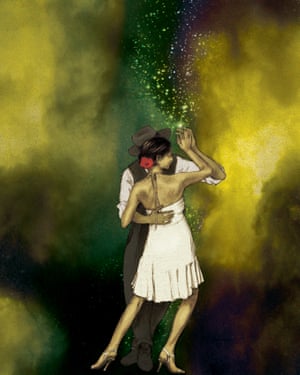— François-René de Chateaubriand, born in 1768
The world of the internet – fundamentally a world of information - is forever creating new trends, colourful human patterns and trailblazers who are more courageous and fly even beyond MEdia Dragons ...
It was Beyoncé who—in her own centerspread words— “stripped away the wigs and hair extensions and used little makeup for this shoot” to encourage “women and men to see and appreciate the beauty in their natural bodies.” It was Beyoncé who subsequently posted the photos on Instagram, where I, and likely millions more, first saw them. And it was Beyoncé’s Instagram account that dozens of websites raided to embed the images in blog posts. In the styling, photography, words, and digital distribution, Vogue came off as a supporting actor in its own September issue cover—even if Mitchell and editor Anna Wintour eventually said otherwise.
Civilised Scott Sumner on how to choose what to read and what to leave out ...
The twenty books most often left behind at motels (The Tale of Cold River no longer tops the list).
The Disconnect is an offline-only, digital magazine of commentary, fiction, and poetry. Each issue forces you to disconnect from the internet, giving you a break from constant distractions and relentless advertisements.
Today there are 60 armed
The world of the internet – fundamentally a world of information - is forever creating new trends, colourful human patterns and trailblazers who are more courageous and fly even beyond MEdia Dragons ...
There is hardly a more elemental human need than our need for belonging — in a place, in a heart, in ourselves. Perhaps this is why we are so susceptible to thatparticular kind of loneliness that begins in childhood, as we try to master the “fertile solitude” necessary for self-esteem, and can so often morph into a kind of existential homelessness as we grow older and slip into continually narrowing landscapes of possibility. “You only are free when you realize you belong no place — you belong every place,” Maya Angelou told Bill Moyers in their fantastic 1973 conversation about freedom.
That elusive, coveted locus of belonging is what poet and writer M.H. Clark explores in the spare and lovely You Belong Here (public library).
You Belong Here: An Illustrated Antidote to Our Existential Homelessness
It was Beyoncé who—in her own centerspread words— “stripped away the wigs and hair extensions and used little makeup for this shoot” to encourage “women and men to see and appreciate the beauty in their natural bodies.” It was Beyoncé who subsequently posted the photos on Instagram, where I, and likely millions more, first saw them. And it was Beyoncé’s Instagram account that dozens of websites raided to embed the images in blog posts. In the styling, photography, words, and digital distribution, Vogue came off as a supporting actor in its own September issue cover—even if Mitchell and editor Anna Wintour eventually said otherwise.
The Disconnect is an offline-only, digital magazine of commentary, fiction, and poetry. Each issue forces you to disconnect from the internet, giving you a break from constant distractions and relentless advertisements.
Today there are 60 armed
Conflicts ongoing in our world
On four of seven continents.
I sit here writing poems unharmed.
It’s almost quaint, the flags unfurled
As wood ships traded armaments
Until a mast or two went down —
Then the surrender of the crown.
Now, instead of drowning in waves,
Men and babes vanish in mass graves
And we tried to live by her fierce dictum: “Fitting in is death. Remember that.
You want to stand apart from your peers. Always." (Some Tatranka characters used to walk the corridors of the Bear Pit and even even East Attitude floors)
Those new service sector jobs: Seoul to check public toilets daily for hidden cameras.
Google publishes new research on digital well being -Google Blog: “As researchers on the Android team, we spend a lot of time out in the world, listening to our users. To do our best work, we leave our passions behind. Objectivity is key. But it’s hard not to develop empathy, especially when you start to notice that not everything about people’s experience with technology is positive. As early as 2015, we noticed that increasingly, people we talked to were raising a flag about how distracting notifications on mobile devices can be. So we started thinking a lot about the role of notifications on people’s phones, and how we could build a better experience to help people achieve balance. We started with some small changes in Android Nougat, like bundling notifications and making it easier to reply to a message without opening the app. But we knew there was more that we could do to understand how phones might be making it harder for people to disconnect, and the frustration this was generating. So last year my colleague Safia Baig and I embarked on a research project to do that, and we’ve just published the results.
Toward “JOMO”: the joy of missing out and the freedom of disconnecting. MobileHCI ’18 Proceedings of the 20th International Conference on Human-Computer Interaction with Mobile Devices and ServicesArticle No. 19. Barcelona, Spain — September 03 – 06, 2018 ACM New York, NY, USA ©2018. table of contents ISBN: 978-1-4503-5898-9. doi 10.1145/3229434.3229468. “We took an ethnographic approach to explore the continuum between excessive smartphone use and healthy disconnection. We conducted a qualitative mixed-methods study in Switzerland and the United States to understand the nature of the problem, how it evolves, the workarounds that users employ to disconnect, and their experience of smartphone disconnection. We discussed two negative behavioral cycles: an internal experience of habit and excessive use, and an externally reinforced cycle of social obligation. We presented a taxonomy of non-use based on the dimensions of time and user level of control. We highlighted 3 potential areas for solutions around short-term voluntary disconnection and describe recommendations for how the mobile industry and app developers can address this issue.”

Trump's tantrums are coming back to torment him, under the cloak of anonymity
For years before becoming President,
Donald Trump — as a real estate developer and then a presidential
candidate — dropped information on journalists by either demanding that
his name not be used or using a pseudonym. That behaviour may be coming
back to haunt him, writes Micheline Maynard.


